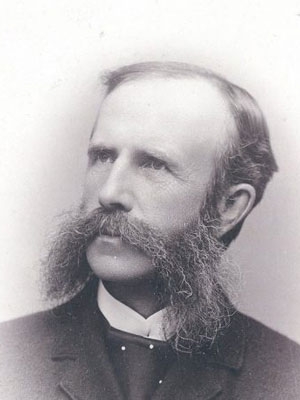Faculty Member Name
He/Him/His
Job Title

- Office
- Address
- Tel
- (802) 443-5555
- email@email.edu
- Office Hours
- Office Hours
This is where you can highlight your interests, achievements, publications, and anything else you want people to know about you! You can also link to a CV or external website. Visitors to this page will typically include current students and faculty as well as prospectives and peer professionals.
Video
This is where you could post one or more videos of research activities, coursework, or anything else you want to feature.
All videos require a transcript for accessibility purposes. Communications can help provide transcript services.
Courses Taught
INTD 0232
Upcoming
Conflict Transformation Skills
Course Description
Conflict Transformation: Approaches and Skills (Half Credit)
This course introduces students to a variety of approaches to conflict transformation (CT), including intercultural competence, mediation, restorative practices, and structured dialogue. CT skills enrich classroom learning and prepare students to be effective citizens in a polarized public square. To transform conflict, we must first understand the nature of conflict and then develop tools to build healthy relationships and communities – locally, nationally, and globally. Students will learn about the drivers of conflict and then practice CT skills in the course. This course is part of a Middlebury-wide CT initiative, and this course is foundational for students who wish to pursue practicum or research opportunities in other CT programs. Students will meet once a week over the semester. (Half Credit)
(This course will meet during the second half of the Spring '23 term, from 4/4/2023-5/9/2023)*
Terms Taught
RELI 0211
Love & Anger in Indian Epics
Course Description
Love, Anger, and Betrayal in the Indian Epics: The Mahabharata, The Ramayana, and The Shilappadikaram
This course has two goals: to acquaint students with the immense narrative tradition which makes up much of India's religious heritage; and to examine how ideas about love, anger, and betrayal are expressed through the epic medium. The course will focus on the Sanskrit epics, the Ramayana and the Mahabharata, and the Tamil South Indian epic, the Shilappadikaram. We will also discuss the contemporary "re-tellings" of these epics by Indian and Western authors in essays, poetry, film, and theater. We will end by examining the epics’ strategic uses in Indian politics, including nineteenth century freedom movements, Tamil separatism, recent Hindu/Muslim disputes, or early twenty-first century feminist and LGBTQIA+ activism. 3 hrs. lect.
Terms Taught
Requirements
RELI 0311
God and Love: India & Israel
Course Description
God and Love in the Ancient World: India and Israel
Are loving god and loving a person the same thing? Do people use the same forms of expression for human and divine love? Lovers of all kinds have been asking these questions since the second millennium, BCE. In this course we will explore these questions and others by reading poetry, narrative, prayer, and epic from two ancient classical civilizations: Brahmanical India and Biblical Israel. We will read Indian texts of the Rg Veda, the Bhagavad Gita, and devotional hymns to the classical Hindu gods and goddesses. We will compare these texts with those from the Hebrew Bible, including well-known narratives of royalty, the psalms and the Song of Songs. (At least one RELI course required; courses in the study of literature preferred but not required). 3 hrs. sem.
Terms Taught
Requirements
RELI 0322
Who Owns Religion
Course Description
Who Owns Religion? Controversies in the Study of Religion and Being a Public Intellectual
This course is a study in public scholarship in the humanities--focused on the study of religion but relevant to other humanistic disciplines. Its primary text will be the work: Who Owns Religion? Scholars and Their Publics in the Late 20th Century. The work focuses on case studies where scholars of religion offended the very communities they had imagined themselves honoring through their work. While controversies involving scholarly claims about religion are nothing new, this period saw an increase in public disputes that continues today. At its best, the situation involves constructive dialogue; at its worst, authors and their institutions are the targets of hate mail and book-banning campaigns, and communities are mistrustful of academics and the systems in which they work. These controversies raise important questions that we will deliberate on throughout the class: what does it mean to represent religion? What are the roles of sexuality, gender, racial, disability, historical, colonial and postcolonial realities in this representation? How do academic institutions both contribute to and undermine that representation? Most importantly, what does it mean to create sustained reflection about the public sphere in any project in the study of religion, or the humanities in general? What is the work of a public intellectual? The course will work through the case study method. Each week we will examine a new case in the book, and related materials. At the beginning of the class, students will choose a case study of their own to examine. Their own cases can be drawn from the study of religion or another field of the humanities. Each week, they will be asked to think through the questions raised by the case studies in the book as they might apply to their own case studies. In this way they will develop skills in reading, assessing, and even engaging themselves in controversies where there are no perfect answers. Prerequisite: One course in the study of religion or advanced work in a related field; a willingness to and experience in critically thinking through different sides of a problem; and a deep commitment to the public sphere.
Terms Taught
RELI 0400
Seminar: Study of Religion
Course Description
Methods in the Study of Religion
How do we think about religion? Is there a common way to talk about religion across cultural divides or should we simply concur that religion is like art, where “We can’t define it, but we know it when we see it? This course will take us through the basic twentieth and twenty-first century theories in the study of religion as “ways of perceiving” this most elusive of phenomena: anthropology, psychology, history, text, politics, philosophy, theology, experience. All of these ways of perceiving religion play a crucial role in the history of the field. We will end by thinking through recent issues in the study of religion–religion and politics, gender and sexuality, comparative and interfaith studies, and the authority of religious identity. Students will be asked to outline a single, compelling case study in religion, and each week they will apply the theorists we read to the details of their case. In applying theories about religion to real-life situations, students will become skillful practitioners of the art of interpreting religion. They will also develop their own approaches to the study of religion and be able to articulate that approach to a wider audience. (At least 3 courses in the study of religion or by waiver. Open only to juniors and seniors.) 3 hrs. sem.
Terms Taught
RELI 0500
Current
Upcoming
Independent Research
Course Description
Independent Research
(Approval Required)
Terms Taught
RELI 0700
Upcoming
Senior Project in Religion
Course Description
Senior Project
(Approval Required)
Terms Taught
RELI 0701
Current
Upcoming
Senior Thesis in Religion
Course Description
Senior Research for Honors Candidates
Approval required
Terms Taught
Areas of Interest
This is where you can highlight your areas of interest. You can link to relevant courses that you teach. And you can also link to external resources.
- Lorem Ipsum
- Lorem Ipsum
- Lorem Ipsum
Academic Degrees
This is where you can list any academic degrees and other related information.
- Lorem ipsum, lorem ipsum at lorem ipsum
- Lorem ipsum, lorem ipsum at lorem ipsum
- Lorem ipsum, lorem ipsum at lorem ipsum
Publications/Professional Works/Performances etc.
Here is where you can list and link to any publications or creative works you would like to highlight. You can change the heading to be whatever you want.
- Lorem ipsum, lorem ipsum at lorem ipsum
- Lorem ipsum, lorem ipsum at lorem ipsum
- Lorem ipsum, lorem ipsum at lorem ipsum

